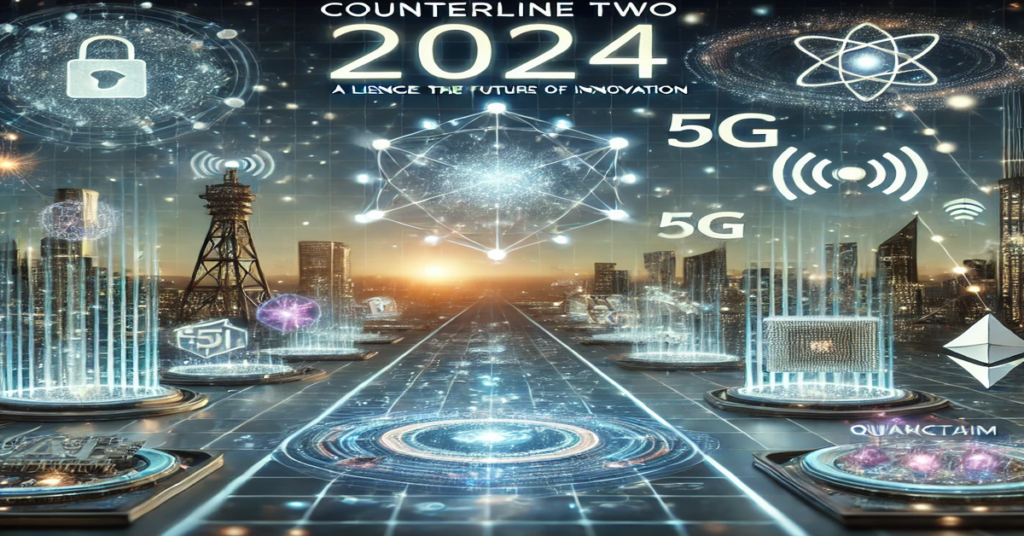The world of technology is constantly evolving, and each year brings new trends, advancements, and challenges. As we look ahead to 2024, several innovations are shaping industries, driving economic growth, and transforming how we live, work, and communicate. Among the various technology innovations, Counterline Two 2024 stands out as a potential trend or product that could represent the next generation of technological breakthroughs.
This article will explore the likely technological trends that could fit under the moniker “Counterline Two 2024 Technology”—from AI and machine learning to 5G, robotics, and beyond. We will delve into how these technologies will reshape industries, the ethical and societal implications, and what we can expect from the technology landscape in 2024 and beyond.
The Rise of Artificial Intelligence and Machine Learning
One of the most significant trends expected to dominate the technology landscape in 2024 is the continued rise of artificial intelligence (AI) and machine learning (ML). These technologies are already transforming a wide range of industries, from healthcare to finance, manufacturing, and transportation. In 2024, AI and ML are expected to become even more integrated into everyday business and consumer processes.
AI will be key in automation, decision-making, and predictive analytics. Companies will rely on AI-powered tools to enhance their operational efficiency, improve customer service, and create more personalized experiences for users. Additionally, advancements in machine learning algorithms will enable systems to process vast amounts of data faster and more accurately, allowing businesses to predict trends and make smarter decisions.
For instance, in the healthcare industry, AI and ML are expected to play a crucial role in diagnostics, drug discovery, and personalized medicine. AI-powered tools could help doctors detect diseases earlier by analyzing medical images, predicting patient outcomes, and even suggesting treatments. Machine learning will help optimize drug discovery by analyzing complex biological data and identifying promising compounds.
In finance, AI will continue to be used for risk management, fraud detection, and algorithmic trading. The ability of AI to analyze large datasets and identify patterns will be critical in providing more accurate and efficient financial services.
5G and the Future of Connectivity
The next generation of mobile connectivity, 5G, is set to revolutionize industries in 2024. With its promise of faster speeds, lower latency, and greater connectivity, 5G will enable new use cases and unlock new possibilities. Industries such as autonomous vehicles, smart cities, and the Internet of Things (IoT) will be significantly impacted by the rollout of 5G.
For autonomous vehicles, 5G will enable real-time communication between vehicles, infrastructure, and pedestrians, allowing for safer and more efficient transportation systems. The low latency and high-speed data transfer capabilities of 5G will ensure that autonomous vehicles can react to road conditions and obstacles in real-time.
In smart cities, 5G will provide the infrastructure needed for connected devices to communicate with each other. This will improve traffic management, energy efficiency, and emergency response systems, making cities smarter and more sustainable.
For IoT, 5G will enable the connection of millions of devices, ranging from wearable health monitors to industrial sensors. The low latency and high bandwidth of 5G will make it possible to transmit large amounts of data from these devices quickly and reliably, enhancing everything from industrial automation to personal health monitoring.
Advancements in Robotics and Automation
Another key technology that is set to evolve in 2024 is robotics. Robots are already transforming manufacturing, logistics, and service industries, and advancements in robotics technology will continue to disrupt these sectors. In 2024, robots will become more autonomous, intelligent, and capable of performing more complex tasks.
For example, collaborative robots (cobots) will become more common in factories, working alongside human workers to perform repetitive or dangerous tasks. These robots will be equipped with advanced sensors, machine learning algorithms, and AI to interact safely with humans and adapt to changing conditions in the workplace.
In the logistics industry, robots will be used for everything from package sorting to last-mile delivery. Autonomous delivery robots and drones will continue to improve, making it easier to get goods to consumers quickly and efficiently.
In healthcare, robots will be used for surgery, rehabilitation, and eldercare. Surgical robots, such as the da Vinci Surgical System, are already being used to perform minimally invasive procedures, and in 2024, we can expect more advanced robots to perform even more complex surgeries. Additionally, robots will assist in elderly care, providing companionship, assistance with mobility, and monitoring health conditions.
Blockchain and the Future of Decentralized Systems
Blockchain technology, which gained widespread attention due to the popularity of cryptocurrencies like Bitcoin and Ethereum, is poised to have a broader impact on industries in 2024. Blockchain’s ability to provide secure, transparent, and decentralized record-keeping will be applied to sectors beyond finance, including supply chain management, healthcare, and voting systems.
In supply chains, blockchain can provide end-to-end visibility and traceability, ensuring that products are ethically sourced and that consumers can verify the authenticity of products. For instance, blockchain can help track the journey of food products from farm to table, ensuring that food is safe and sustainably sourced.
In healthcare, blockchain can be used to securely store and share patient data, making it easier for doctors to access a patient’s medical history across different healthcare systems while maintaining patient privacy. Blockchain will also be used for clinical trials, ensuring transparency in the data collection and reporting process.
In voting systems, blockchain can provide a more secure and transparent way to conduct elections, reducing the risk of fraud and ensuring that votes are counted accurately.
Quantum Computing: A Revolutionary Leap Forward
One of the most exciting developments in technology that could shape the future of computing is quantum computing. While still in its early stages, quantum computing has the potential to revolutionize industries by solving problems that are impossible or impractical for classical computers to address.
Quantum computers leverage the principles of quantum mechanics to perform computations much faster than traditional computers. In 2024, we can expect further advancements in quantum computing research and development, with the potential to solve complex problems in fields like drug discovery, cryptography, and materials science.
For example, in drug discovery, quantum computing could help simulate molecular interactions at a much higher level of accuracy, enabling the development of new medications and treatments. In cryptography, quantum computers could potentially break existing encryption algorithms, prompting the need for new, quantum-resistant encryption methods.
The Ethical and Societal Implications of Emerging Technologies
While the future of technology is exciting, it also raises important ethical and societal concerns. As AI, robotics, blockchain, and other technologies continue to evolve, we must address issues such as privacy, job displacement, inequality, and the responsible use of technology.
- Privacy: As AI and IoT devices become more integrated into our lives, concerns about data privacy and security will continue to grow. Companies will need to adopt stricter data protection measures and ensure that consumer data is handled ethically.
- Job Displacement: Automation and AI may replace certain jobs, leading to concerns about job displacement. It will be important to retrain workers and provide new opportunities in the tech-driven economy.
- Inequality: There is a risk that emerging technologies could widen the gap between rich and poor, particularly in areas like healthcare, education, and access to technology. Ensuring equal access to technology and addressing digital divides will be crucial.
Conclusion
As we move into 2024, the landscape of technology will continue to evolve at an unprecedented pace. From AI and 5G to quantum computing and blockchain, innovations will shape how industries operate, how we interact with the world, and how society progresses. Technologies like Counterline Two 2024 will play a pivotal role in driving these advancements, offering new solutions to complex problems and opening up new possibilities for the future.
However, the ethical and societal implications of these technologies must be carefully managed. By ensuring that we prioritize privacy, equality, and ethical decision-making, we can harness the full potential of technology to create a better, more sustainable future.
FAQs About Counterline Two 2024 Technology
1. What is Counterline Two 2024 Technology?
While “Counterline Two 2024” is not widely recognized, it likely refers to the next generation of emerging technologies, possibly related to AI, 5G, quantum computing, or similar fields expected to shape the technological landscape in 2024.
2. How will AI impact industries in 2024?
AI will continue to transform industries such as healthcare, finance, transportation, and entertainment by enhancing automation, decision-making, and personalization, allowing for more efficient operations and improved customer experiences.
3. What are the main ethical concerns regarding emerging technologies?
Emerging technologies raise concerns about privacy, job displacement, inequality, and responsible use. Ensuring that these technologies are used ethically and equitably will be crucial as they evolve.
4. What role will 5G play in 2024 technology?
5G will enable faster speeds, lower latency, and more reliable connectivity, paving the way for advancements in autonomous vehicles, smart cities, and IoT applications, thus transforming industries across the board.
5. How does quantum computing differ from traditional computing?
Quantum computing leverages the principles of quantum mechanics to perform calculations much faster than traditional computers, allowing for breakthroughs in fields like cryptography, drug discovery, and complex simulations.
6. What is the future of blockchain technology?
Blockchain is expected to expand beyond cryptocurrencies into areas like supply chain management, healthcare, and voting systems, offering secure, transparent, and decentralized solutions for a variety of industries.







